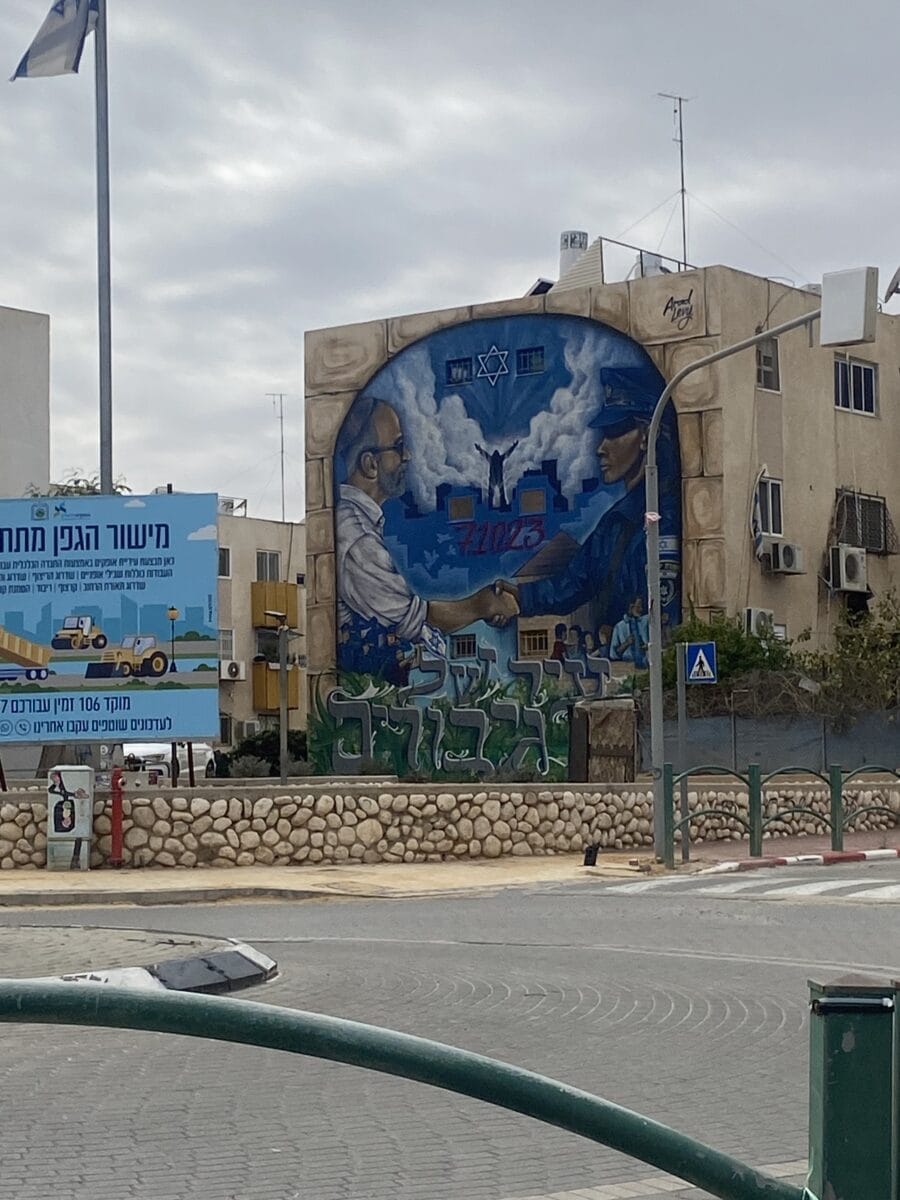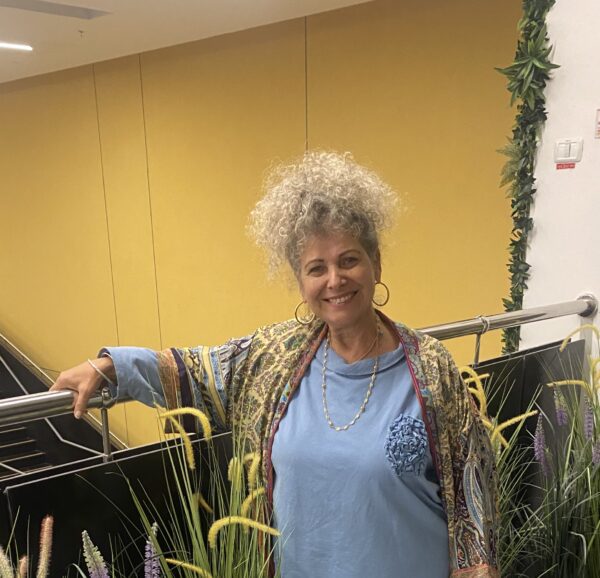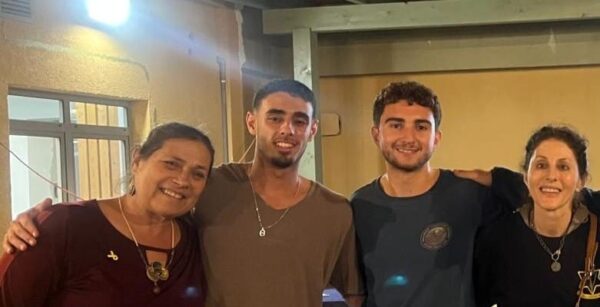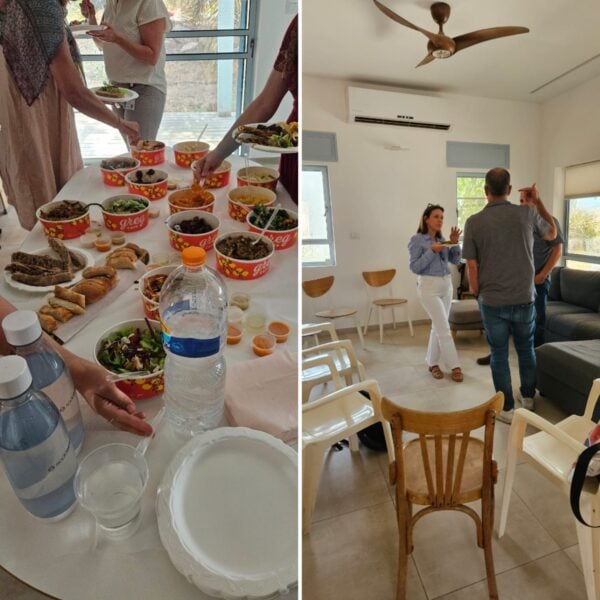The beginning of September is often filled with powerful emotions and new beginnings. For our group – members of Shnat Sherut 50 Plus, Merhavim – this period marked a particularly moving start to our journey.
Just two days after our emotional arrival in the south, we embarked on an unforgettable walking tour through Mishor HaGefen, one of the oldest neighborhoods in Ofakim – and one of the hardest hit during the devastating events of October 7th.
Our guide, Nadav Mashaly, director of the Ofakim Cinematheque, led us through the quiet paths between the blooming greenery and the modest homes. Alongside the beauty, stark reminders of the tragedy surrounded us: posters commemorating the heroism and mourning the loss of 52 local residents.
The tour was designed around six “story stations,” each carefully chosen and presented by local teenagers. These inspiring young people, part of the DocuCommunity social cinema project, had conducted personal research into the stories of the victims and survivors. Their presentations – delivered with authenticity, sensitivity, and often through tears – opened a window into the immense courage and heartbreak woven into every corner of the neighborhood.
The Emotional Landscape
We heard firsthand testimonies of the horror that unfolded:
- A couple who lost both their sons, killed while defending their home.
- A sister mourning her brother, a brave policeman who rushed to protect others after his night shift.
- Neighbors who were murdered in cold blood in stairwells.
- Stories of incredible heroism, where residents with only handguns faced dozens of heavily armed terrorists.
The raw pain was palpable. Alongside the tears, there were questions without answers – sorrow, anger, and a deep sense of abandonment. Yet throughout the tour, the people of Ofakim expressed profound gratitude that we had come: to listen, to care, and to honor their stories, especially as they felt their city’s heroism had been overlooked by the media and wider public.
At the final stop, we met Michal Bilia on the balcony of her partially ruined home. Michal is the mother of Ariel Bilia z”l, who saved his family by helping them escape through a window moments before terrorists entered their house. Ariel himself was killed while protecting them, shot by intruders as he tried to escape last.
Despite her unimaginable loss, Michal greeted us with strength and grace. She refuses to call that day “Black Saturday,” insisting that Shabbat remains holy and pure, even amid tragedy. Her home is now being renovated, and she looks forward to welcoming her children and grandchildren once again – a symbol of resilience and life continuing.
Then, something extraordinary happened.
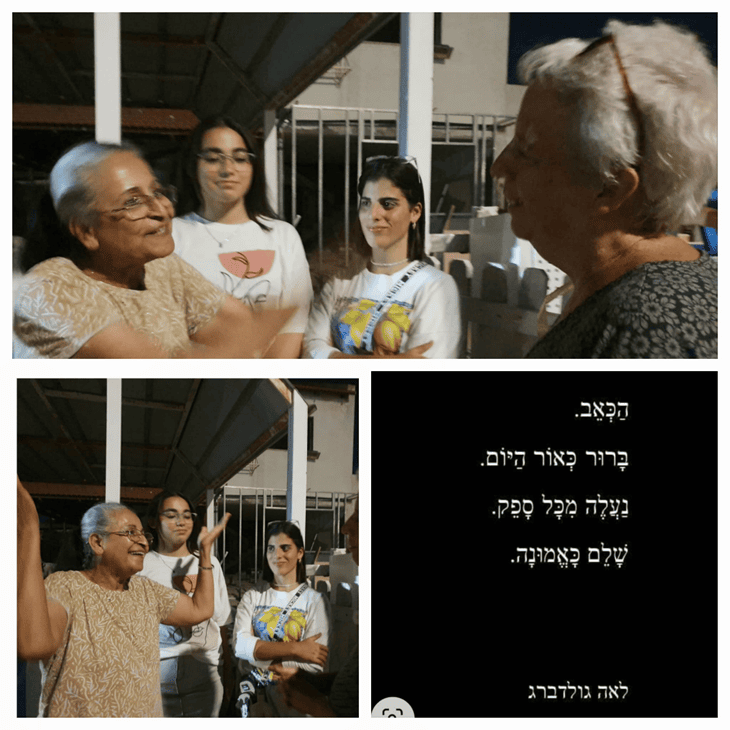
Hedva, one of our volunteers, approached Michal with warmth and sensitivity. She shared that she and her husband Davidi would soon be moving into the house next door – Ariel’s former home, left empty since that terrible day.
Michal’s face lit up. Tears welled in her eyes, a mixture of sadness and sudden joy. She said:
“You have no idea how much this excites and makes me happy. I’ve been waiting for the day this house would come alive again. Ariel’s good energies are still embedded in those walls – you will feel them. Your good deeds will be carried even further by the strength and spirit he left behind. We are going to be amazing neighbors!”
This encounter, full of pain, hope, and new beginnings, left an indelible mark on all of us.
As we move forward with our year of service, this day – and the incredible people we met – will remain in our hearts, guiding and inspiring our steps.
